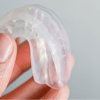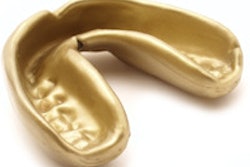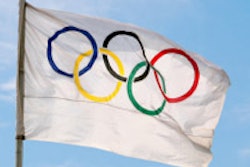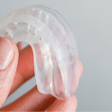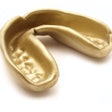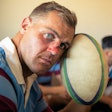
Professional soccer players are at an increased risk for poor oral health, according to a new study in the British Journal of Sports Medicine. Researchers found that many U.K. professional footballers have active caries and almost half were bothered by their oral health.
The findings are concerning, because these premier athletes have access to some of the best medical care in the U.K., yet they are still at an increased risk for poor oral health. The authors suggested that sports team should take preventive initiatives to help athletes maintain better oral health.
"This study provides the most reliable evidence that oral health within professional football is poor and is consistent with research conducted in Brazil, Spain, and the USA," the study authors wrote (Br J Sports Med, November 2, 2015). "Therefore, we recommend oral health screening within football."
Poor oral health affects performance
Lead study author Ian Needleman, BDS, PhD, a professor of restorative dentistry and evidence-based healthcare at University College London, has previously studied oral health and athletes. His research has shown that many athletes, including Olympians, have preventable oral health conditions, including caries, periodontal disease, and erosion. Dr. Needleman wanted to see if poor oral health carried over to soccer, arguably the most popular sport worldwide.
 Ian Needleman, BDS, PhD, a professor at University College London, holds the Olympic torch during the London 2012 Olympics.
Ian Needleman, BDS, PhD, a professor at University College London, holds the Olympic torch during the London 2012 Olympics.For the study, six dentists examined 187 professional football players from eight U.K. football clubs. The nearly 200 players studied represented 96% of eligible athletes, making this study one of the largest single sport oral health surveys. Each player was also given a questionnaire to determine demographic information, symptoms, oral health behavior, and health-related quality of life.
The researchers found that 37% of respondents had at least one tooth affected by dental caries, and 84% of players had at least one decayed or restored tooth. The prevalence of caries and restorations also increased with age. While 78% of players ages 16 to 24 had caries and restorations, 92% of 25- to 34-year-olds did.
Perhaps more significantly, the authors found that athletes' poor oral health impacted their performance and everyday quality of life. More than 45% of players reported being bothered by their oral health. Almost 20% said poor oral health affected their quality of life, and 6.9% said poor oral health affected their training or performance.
The finding that athletes report the impact of poor oral health on performance most intrigued Dr. Needleman, he told DrBicuspid.com in an interview. "Not really surprising, since we know that oral health affects quality of life," but he noted that it was interesting that the effect is large enough to be shown by their research.
Although Dr. Needleman and his colleagues chose not to include a control group to compare against the professional soccer players, they did compare their findings to data from a recent Adult Dental Health Survey for England, Wales, and Northern Ireland. The researchers found that, in general, the athletes in the study had a similar or higher frequency of untreated caries and also more restorations.
Other findings include the following:
- The median number of restored teeth among players with at least one restoration was five.
- 53% of players had dental erosion.
- 80% of players had gingivitis, and 5% of players had irreversible periodontitis.
- 21.7% of players had a history of orofacial trauma.
- 5.4% used tobacco, mostly smokeless or chewing tobacco.
Emphasizing the importance of oral health
The study authors recommended implementing oral health education and prevention programs for athletes, since they are at a higher risk for dental problems. Dr. Needleman specifically mentioned programs to emphasize regular oral health screenings, prevent disease progression, and integrate oral health promotion with other healthcare for athletes. He also recommended general dentists talk to athletes about healthy nutrition.
Informing athletes about the importance of oral health may also positively affect younger and nonprofessional athletes. Dr. Needleman agreed that if oral health promotion for superstar footballers were to become normal, there might be a trickle-down effect for other athletes and sports fans.
However, studies are needed that investigate different models of oral health promotion within professional soccer. Dr. Needleman is currently working on a large study evaluating oral health in multiple sports, hopefully paving the way for a more thorough understanding of oral health in athletes.
"We hope that it will provide comprehensive data to really explore the causes and potential ways to improve the situation, as well as understand the performance impacts," he said. "We are also gathering data to help design interventions to improve oral health in athletes."

